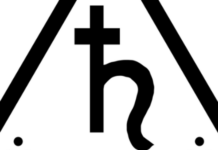“Tao becomes one,
one becomes two,
two becomes three and
three becomes
ten thousand.
Behind existence of every item
is a shadow,
in front of it is light
and as stabilizer is
immaterial breathing.”— Lao Tzu: Tao Te Chiang
In Chinese cosmology, which Japanese is based on too, the source of everything is tao, the universal law. From tao comes one which is existence. From it form two powers, ying and yang, which are both opposite of each other and filling each other. The interaction of ying and yang creates ki, so that these two becomes three. Ki is the “immaterial breathing”, which Lao Tzu wrote about. It is in many shapes, from light to granite. Even immobile matter is built from very dense ki, just like every matter is formed of particles of energy. So, how three becomes “ten thousand”?
According to the old philosophy ki appears in five forms of energy, which are called the five elements. They are fire, earth, metal, water and tree. Each of those have their own special characteristics, which become visible in some of the “ten thousand” things or beings. For example flora belongs mostly to the tree element and stones and minerals to the metal element. Every one of the ten thousand things or beings of nature has some kind of combination of ying and yang and an unique combination of the five elements, which forms “the real ki” of the thing or being.
Elements : Fire : Earth : Metal : Water : Tree -----------+-----------+-------------+---------+------------+------- Color : red : yellow : white : blue/black : green -----------+-----------+-------------+---------+------------+------- Sound : laugh : sing : cry : groan : shout -----------+-----------+-------------+---------+------------+------- Smell : burned : good : spoiled : rotten : rancid -----------+-----------+-------------+---------+------------+------- Feeling : happiness : compassion : sorrows : fear : anger -----------+-----------+-------------+---------+------------+------- Season : Summer : late Summer : Fall : Winter : Spring -----------+-----------+-------------+---------+------------+------- Taste : acrid : sweet : bitter : salty : sour -----------+-----------+-------------+---------+------------+-------
This file courtesy of Yaz (yaz[at]phoenix[dot]oulu[dot]fi)








